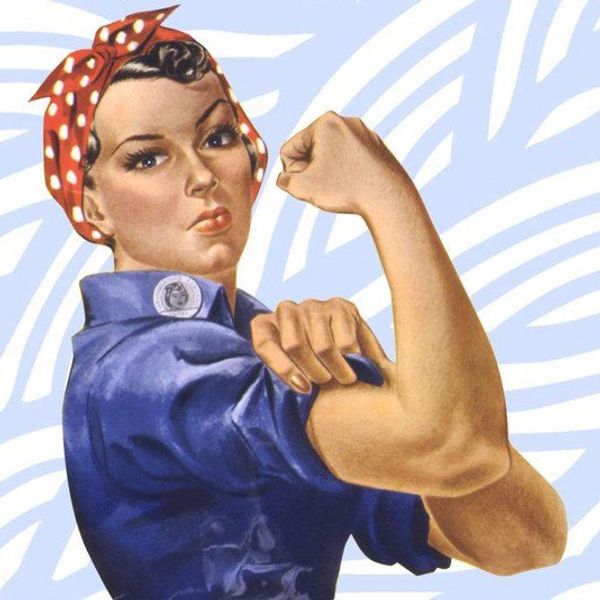As I was reading “Invisible Man” by Ralph Ellison, on page 39 of the novel the narrator takes the time to look at the statue located in front of the school building of the Founder lifting the veil over the slave's eyes, and he wonders whether "the veil is really being lifted, or lowered more firmly into place; whether I am witnessing a revelation or a more efficient blinding.” When the Invisible Man claims whether to be witnessing a “revelation or a more efficient blinding,” for me as the reader, it feels as though he is experience both ends of the spectrum. However, the definition of what the narrator means when he says “more efficient blinding,” meaning that the blindness the blacks have towards/within themselves/their race gives the white man power over them, allowing them to continue to have the ability to sustain that power over and over again without them (the narrator and the other black people) realizing the true intentions behind the white man and their actions regarding the black culture/race.
One occurrence I have that would eventually lead our narrator of the story to the conclusion that I mentioned earlier would be way before he attended college. During the time he was selected to give his graduation speech at the Battle Royal (savagely fighting one another, scrambling across the floor for money, being exposed to temptations they can never have, etc.). This is an example of the black man being “blindfolded” and not having the ability to “see” and “do” as he feels necessary because of the control the white man has on the black soul/body (in the words of Coates). Another form of blindfolding was the fact that the boys were exposed to the naked white female that was dancing in the center of the ring with the American flag tattooed on her stomach, a sign that they should have known that meant that America is the land of the free, but you as a black boy in America don’t have the ability to taste what freedom tastes or feels like because it forbidden to you, just like the white female is (but they would never tell them that, for fear of them losing grip of the boys and their ability to have power over them).
Then there’s the dream in which the narrator has received his briefcase and scholarship, but his grandfather strives to tell him the truth, even beyond the grave. His grandfather once told the family to keep their heads down, but to go along with life while feeling bitter about it because if you don’t, internalizing those feelings would mean that the person (the black person) was committing treachery (which is the blindfold to most). The envelope enclosing the scholarship showed the years he had over his head, meaning the years they would tie him down, shackle him to them and technically force him to learn what they want him to learn without him even knowing it. And the letter, “To Whom It May Concern…Keep This Nigger-Boy Running. (Ellison, pg. 33)” This was basically an exact mention to what the years meant, basically a definition of what they intended to do to him (the narrator) by “allowing” him the ability to attend school. The ability to allow him to accept himself to be shackled under the power and control of the white man for however long he wanted (which in reality was however long they wanted, in keeping him blindfold to his ability to making choices and so forth).
Another important occurrence that happened to the narrator was when he took Mr. Norton around the areas where most of the “animalistic” blacks lived and stayed around. When Mr. TrueBlood spoke of his faults/sins and told Mr. Norton how he felt indifferent about the support and attention he was given for what he had done by those of the white people (which shows the blindness of understanding that they aren’t supporting or giving him the attention because of his faults and the fact that he acknowledged what he did, but was because he did something to the black race/his race and admitted to doing something and through a dream, meaning that he has taken up the white man’s mindset to blame it on something else, and to blame the “American Dream” for the wrongs he’s done). Not only that, but also the encounter both the narrator and Mr. Norton had with the vet from the Golden Day where he tries to explain to both of them the truth about themselves. “…he has eyes and ears and a good distended African nose, but he fails to understand the simple facts of life. Understand. Understand? It’s worse than that. He registers with his senses but short-circuits his brain. Nothing has meaning. He takes it in but he doesn’t digest it. Already he is—well, bless my soul! Behold! a walking zombie! Already he’s learned to repress not only his emotions but his humanity. He’s invisible, a walking personification of the Negative, the most perfect achievement of your dreams sir! The mechanical man! (Ellison, pg. 94).” Here is where the narrator and Mr. Norton are exposed for their “blindfolding” and “blindness” which they begin to become frustrated because of, while also, being blinded to the exact idea of it altogether. This goes along with the conversation the narrator also has with Dr. Bledsoe back at his office after they have come back from their drive. Where Bledsoe has accused the narrator of being a “dumb nigger” because of the fact that he hasn’t accustomed himself to the ways of the white-man and thinks everyone else should as well. There was also the interaction between the last employer (the son of the employer) the invisible man was to see and what they spoke of and how he felt after reading the letter Dr. Bledsoe sent to the men and the aftermath (his feelings and thoughts on the matter, his blindness coming into play and then the blindfold sort of coming off as he begins to sort of realize).





















